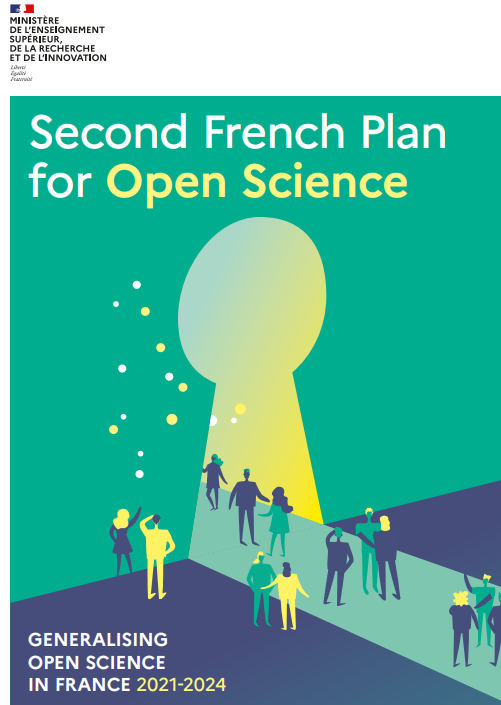Second French Plan for Open Science
Open science refers to the unhindered dissmination of results, methods and products from scientific research. It draws on the opportunity provided by recent digital progress to develop open access to publications and – as much as possible- data, source code and research methods.
Generalising open access to publications
The practice of providing open access to scientific publications should now be inescapable, wether this is done by initially publishing the text as open access or by placing it in an open public archive such as HAL. The aim set by the Research Programming Law is to achieve 100% open access publications by 2030.
Structuring, sharing and opening up research data
Our aim is to ensure that the data produced by French public research is progressively structured to conform to the FAIR principles (Findable, Accessible, Interoperable, Reusable), safely preserved and, wherever possible, open to all.
Opening up and promoting source code produced by research
Software plays a key role in scientific research, and it can be a tool, a result, and a research object. Making software source code available, with the option of modifying, reusing and disseminating them, is a major requirement to ensure the reproducibility of scientific findings and to support the creation and sharing of knowledge, in keeping with the open science ethos.
Transforming practices to make open science the default principle
Open science should become the default principle for researchers and it should constitute a criteria of excellence in research, as is now the case in the Horizon Europe Programme. For this, the higher education and research ecosystem must be transformed to align the incentives, strengthen capacity and increase recognition of the efforts made.

